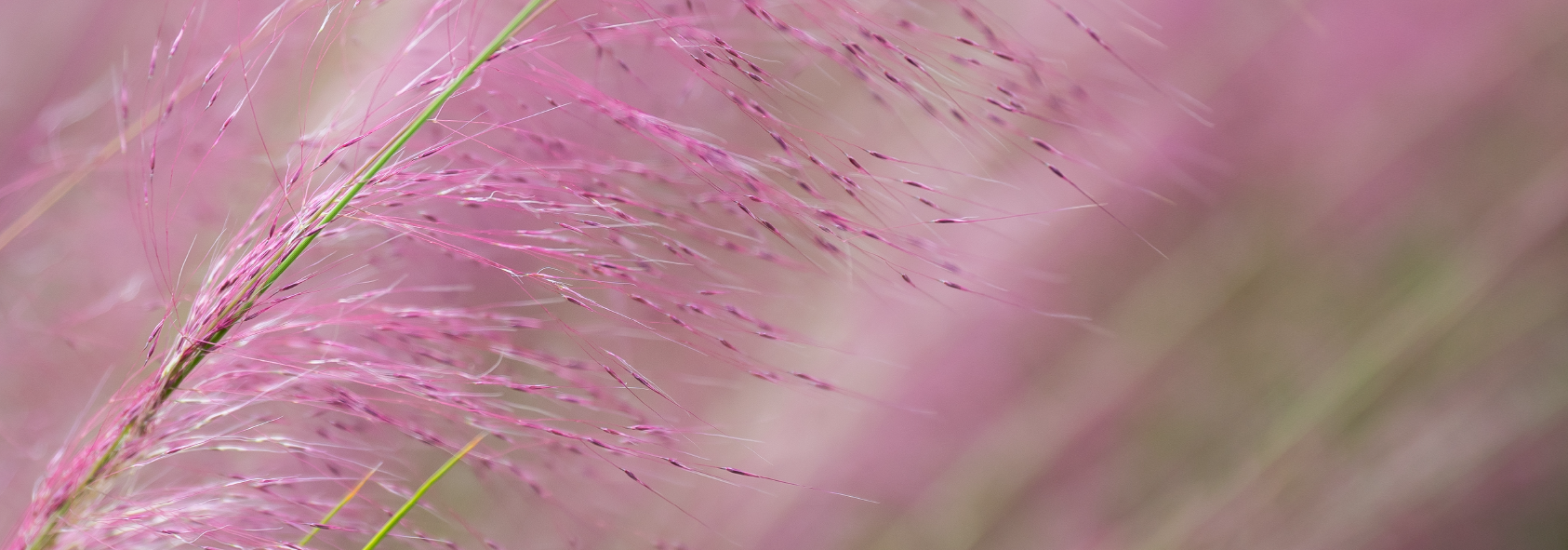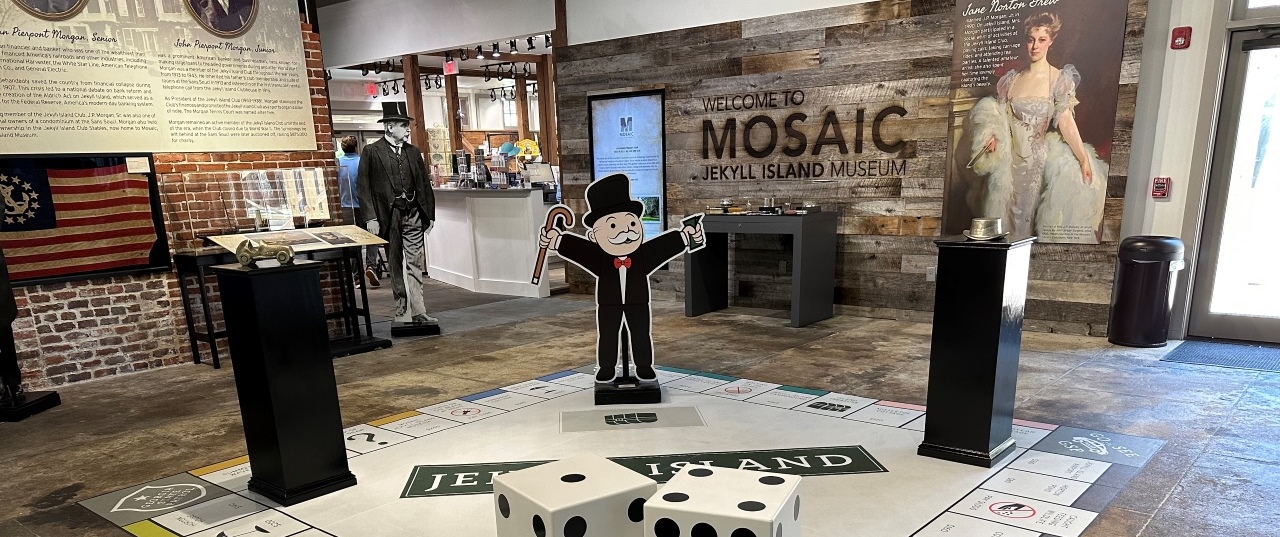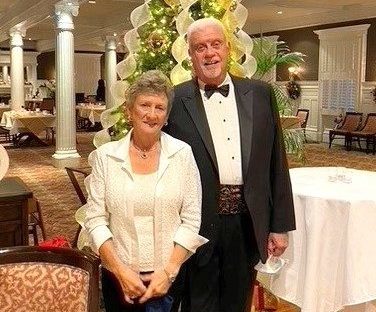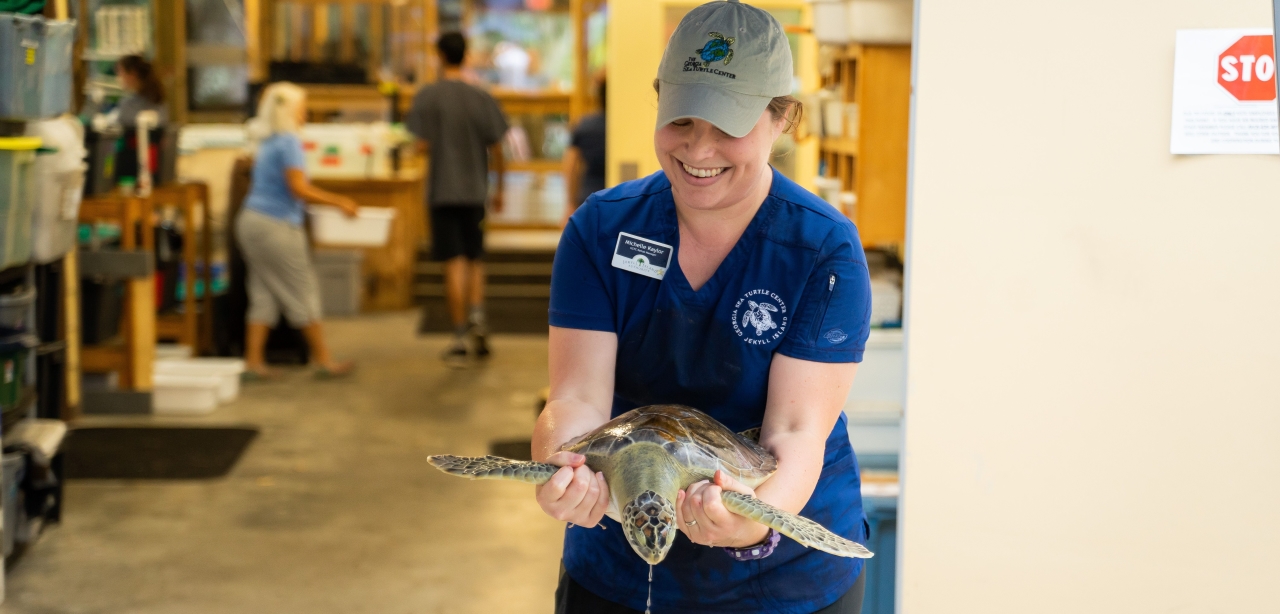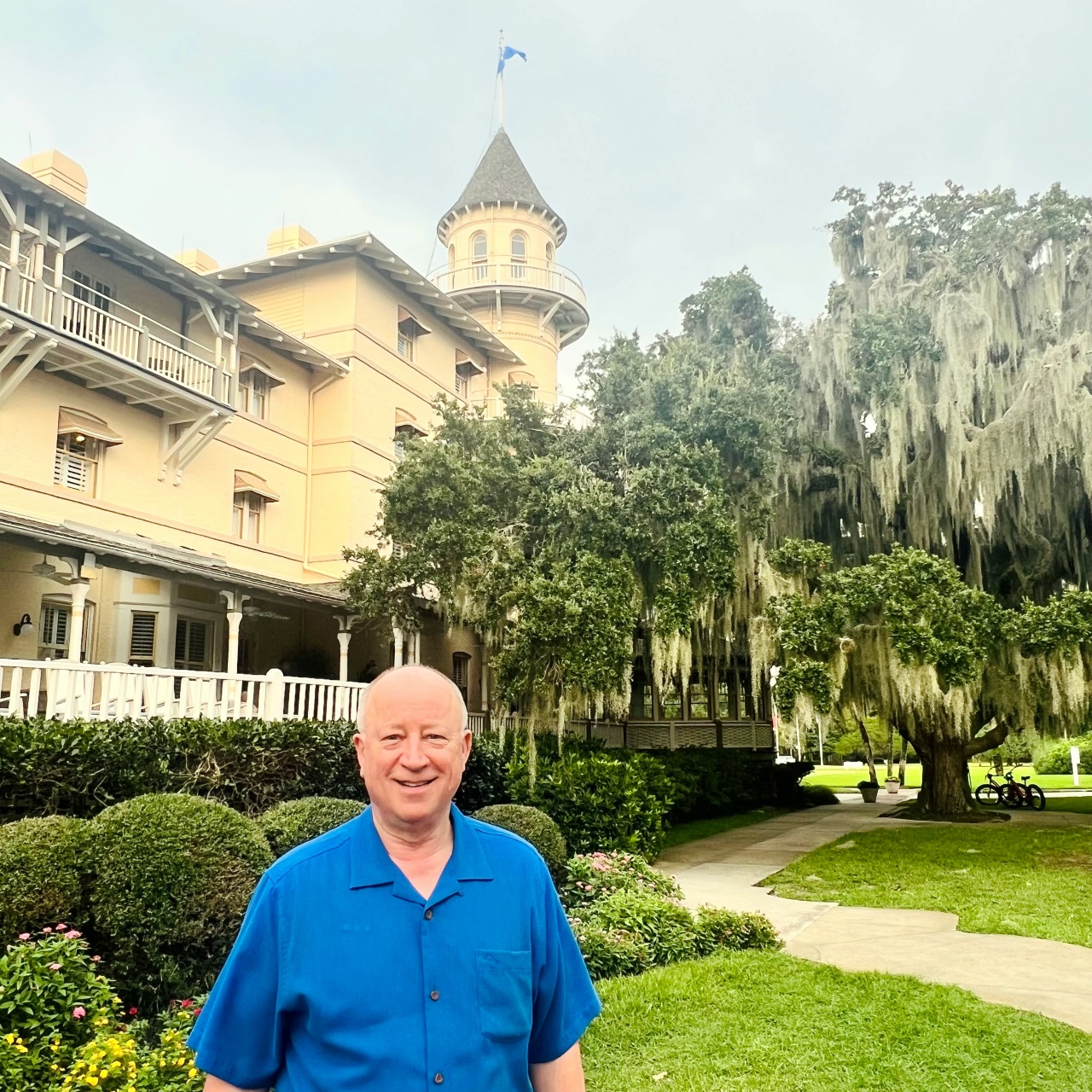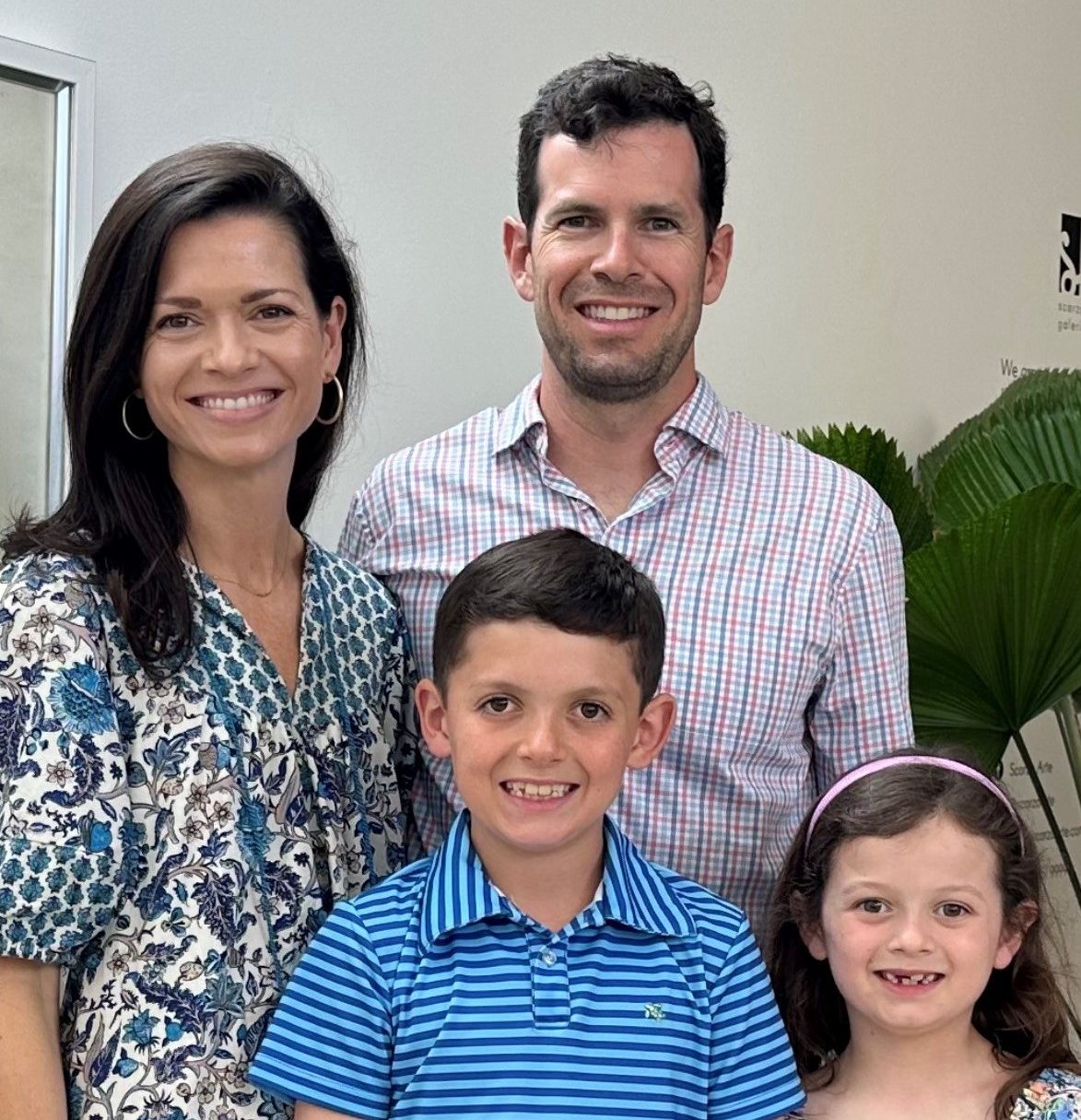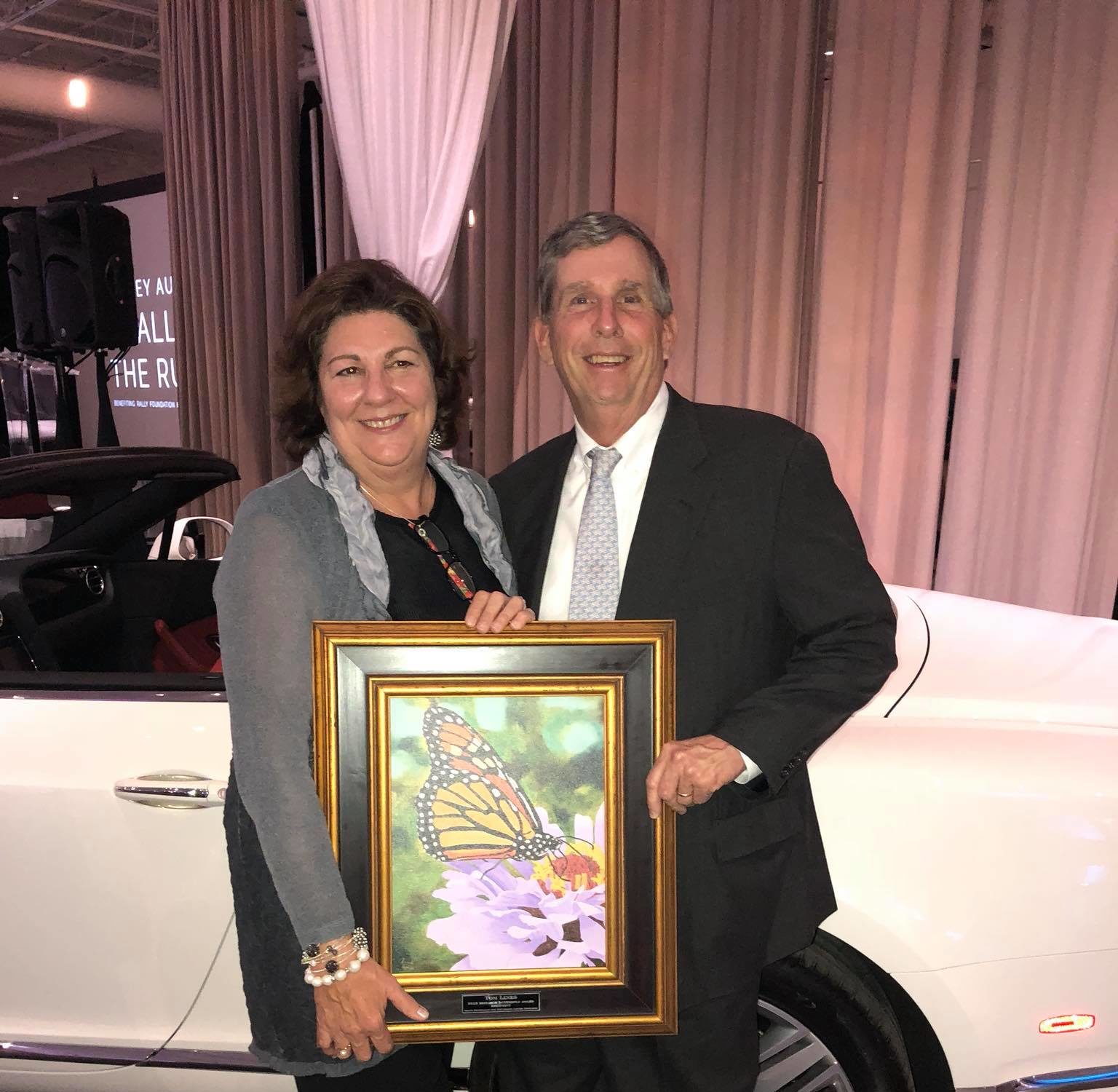by Joseph Colbert, JIA Wildlife Biologist & Yank Moore, JIA Director of Conservation
Picture this: a rare and enchanting habitat, teeming with vibrant wildlife, where lush grasses sway in the coastal breeze. It’s a place where painted buntings, butterflies, and native small mammals frolic amidst the tufts of Sweetgrass, also known as Muhlenbergia sericea, an exclusive coastal inhabitant, which has been a lifeline for numerous coastal species. Welcome to the world of Muhly grass meadows – a world the Jekyll Island Authority is determined to rescue and revive on Jekyll Island!
These magnificent muhly grass meadows are more than just a picturesque landscape. They are a vanishing wonder, threatened by coastal flooding and human-caused interruptions in the delicate coastal sand-sharing system. These stunning habitats, typically found nestled in the dunes of Georgia’s youngest coastal land, are disappearing before our very eyes. Dammed rivers, dredging, and the removal of sand usually deposited on barrier islands have disrupted the natural balance. As a result, what’s left are smaller and more vulnerable patches of these meadows. Currently on Jekyll Island, this natural treasure now covers less than an acre, only located in areas frequently inundated by marsh flooding.
But here is where the magic begins. The JIA’s conservation team is actively embarking on a mission to rescue and restore this imperiled habitat before it vanishes entirely from this beloved Island. Muhly Grass habitats boast incredibly high wildlife diversity. These critters, in turn, support a host of predators, from magnificent birds to slithering snakes and stealthy bobcats.
Sweetgrass, another name for this lush and vibrant vegetation, holds cultural significance, serving as essential components in the creation of sweetgrass baskets by Gullah Geechee communities. Partnering with Georgia Audubon, teams have taken successful strides by planting Muhly grass along Beachview Drive, flanking both sides of Oceanview Beach Park. These endeavors have provided invaluable experience and confidence in ongoing restoration techniques.
But the journey has just begun! Next, attention has turned to the vicinity of Camp Jekyll’s boardwalk, a promising location with higher ground that can protect the habitat from inundation. Even more exciting, it is accretional, meaning there is growth with each passing day through sand deposition – a beacon of hope for the future of these unique grasslands.
The Jekyll Island Authority and Foundation are now calling upon you, our passionate supporters, to join this crucial venture to rescue and restore Jekyll’s native Muhly grass meadows. Imagine the impact that can be made when bringing forgotten, Georgia barrier island landscapes back to life, creating diverse habitats that support rare, threatened, or keystone species.
JIA conservation staff have set their sights on a total area of 30 acres with restoration potential. To achieve this dream, JIF needs your financial support. Your generosity will enable the gradual planting of 5,800 Muhly grass plugs per acre, ensuring the revitalization of this precious habitat.
But that’s not all! This project also paves the way for informational signage and educational programming, thanks to its close proximity to Camp Jekyll. This mission goes beyond restoration; it extends to educating the public about imperiled habitats and the incredible wildlife they shelter.
Together, let us write a new chapter in the conservation history of Jekyll Island, where the magic of Muhly grass meadows blooms once more, and the vibrant wildlife that calls it home thrives for generations to come.
Will you partner to help bring this ecological adventure and make Jekyll Island a beacon of hope for nature’s wonders? Don’t miss your chance to be part of this incredible journey – the future of Jekyll Island’s unique ecosystem depends on it.
To contribute to the restoration of muhly grass on Jekyll Island, click HERE.
